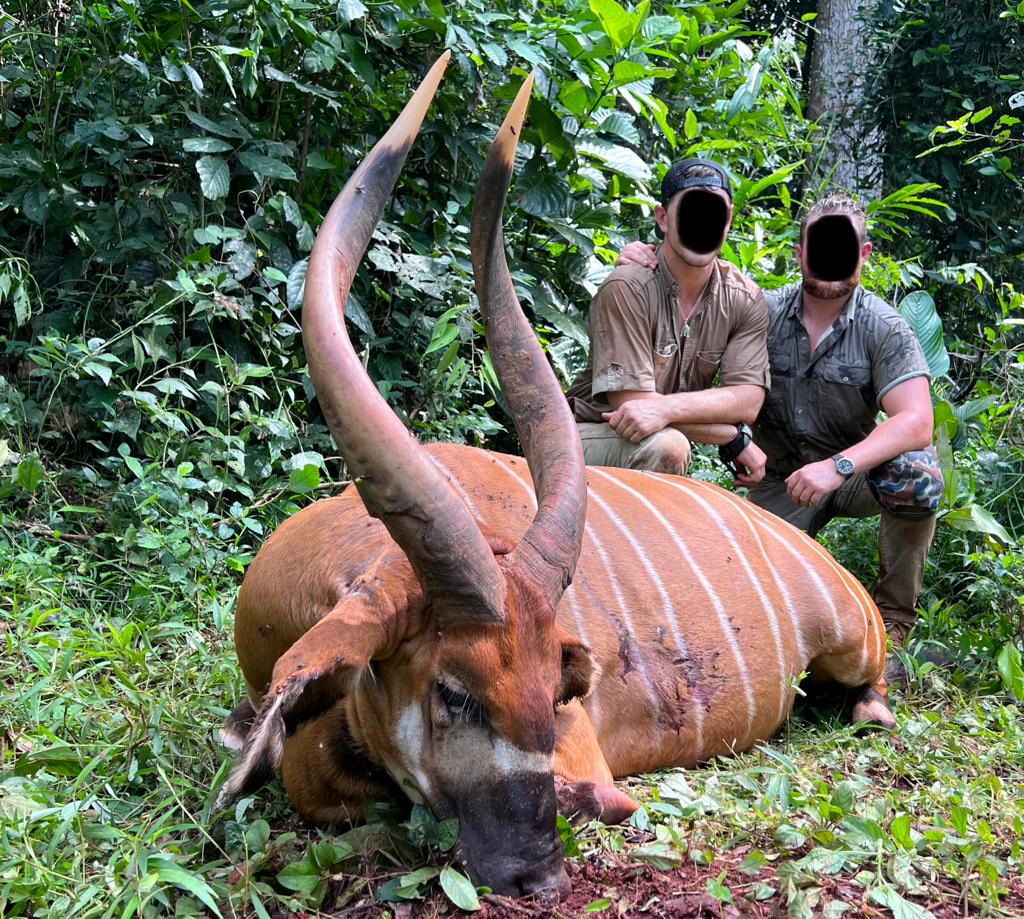
Identifying the Western Bongo:
The Bongo is a large species of antelope which dwells in the dense rainforest of Cameroon. This unique looking species who possesses a rich chestnut or reddish-brown coat with distinct white stripes running vertically down their sides. They are also equipped with spiral horns that extend vertically. Mature bulls will have thicker and longer horns than cows. These elusive animals love the thickest and most dense areas of the rainforest, and are most active at dawn and dusk.
Outline For Hunting the Bongo:
Professional Guides:
Our Outfitter’s engage experienced guides who have in-depth knowledge of the forest, both game and non-game species, and the local hunting regulations. The outfitter also has close relationships with the local pigmies. The PHs superbly speak both English and French, allowing them to speak to both the client and the pigmies.
Tracking:
Bongo are known for their secretive nature, so tracking their movements through dense forests is essential. Soon after rain occurs, the PHs drive the client up the logging roads looking for fresh tracks left behind by a mature bull bongo. Once said track is discovered the pigmies stay in front of both the client and professional hunters as they track the animal. Once the bull bongo is in range, the pigmies pop the leads on their dogs who bay the animal.
Stealth and Skill:
Bongo are incredibly alert and have a keen sense of smell and hearing. Hunters need to be patient and employ stealth while pursuing these animals. Once the bongo is bayed there is a possibility most or almost all the animal will be obscured by vegetation. Quick and effective shooting is essential for a successful hunt. `
Ethical Hunting Practices:
When hunting the Bongo the minimum caliber for legal take is the .354. But the most popular and widely recommended caliber would be the .375. The combination of using the right caliber and precise marksmanship ensures a clean and ethical kill. The outfitter can provide rentals if a hunter does not wish to bring a firearm.
Here at PSI we will NOT book a Bongo safari before April 1st or after July 31st! This is the timeframe when there is peak rainfall within the forest which is essential for tracking.